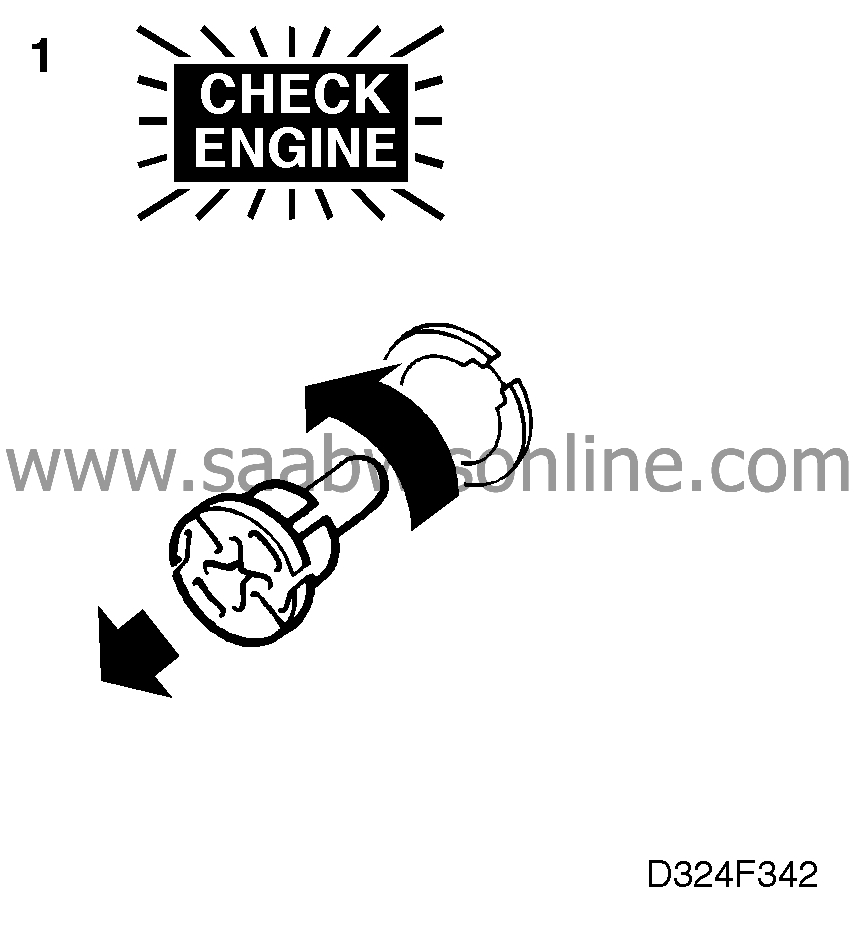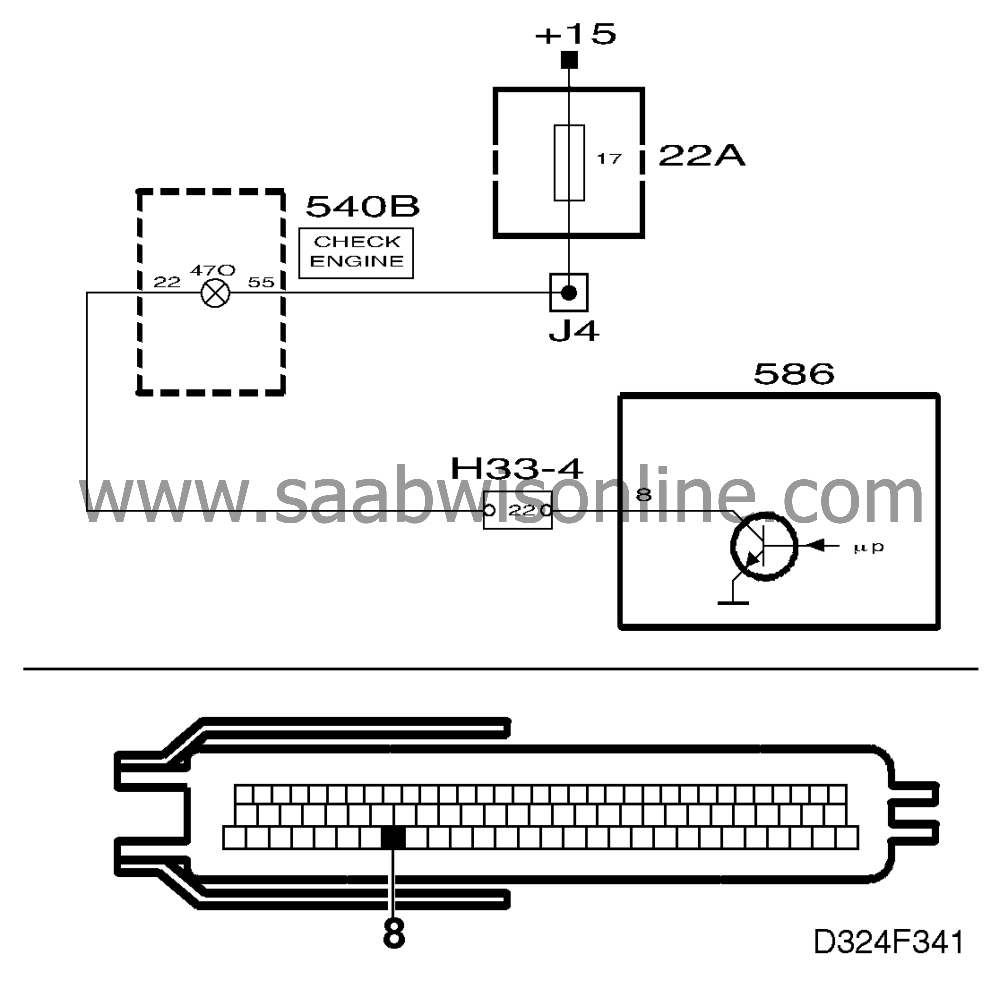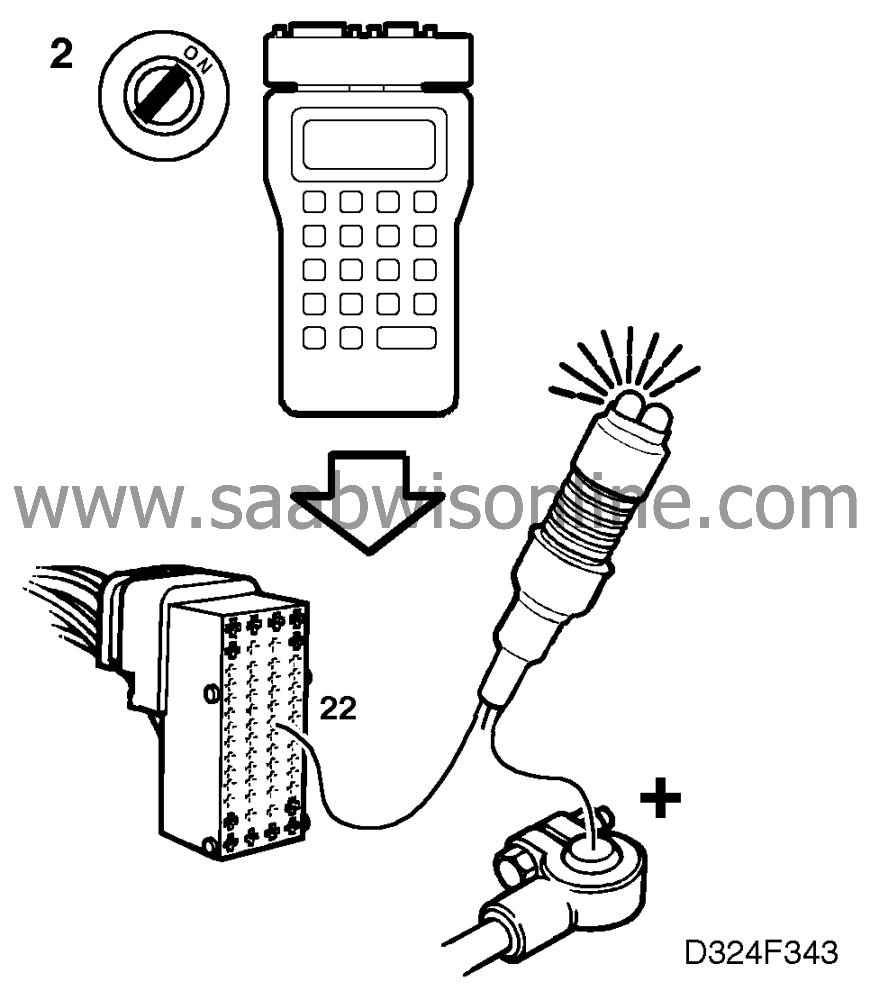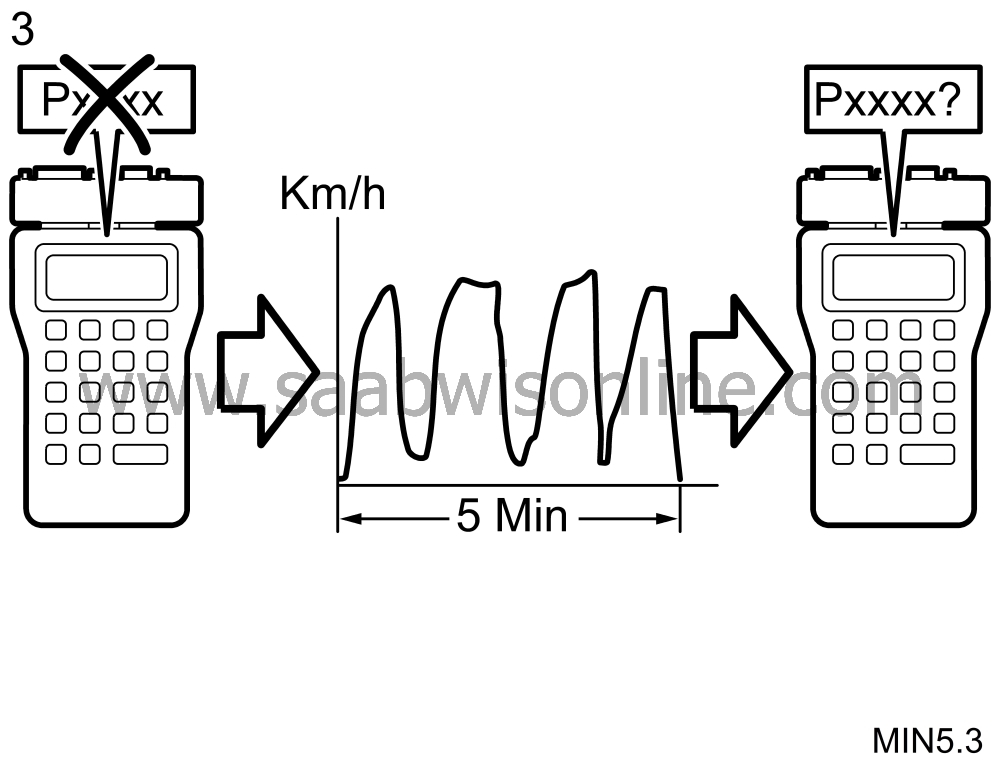P1691,P1692, P1693
Symptom: CHECK ENGINE lamp (MIL) on continuously or out of
order.
Check engine
Fault symptoms
CHECK ENGINE lamp (MIL) on continuously or out of
order.
Conditions
P1691
|
•
|
Engine speed higher than 80
rpm.
|
|
•
|
Battery voltage 7.5-17 V.
|
P1692
|
•
|
Engine speed higher than 80
rpm.
|
|
•
|
Battery voltage 7.5-17 V.
|
P1693
|
•
|
Engine speed higher than 80
rpm.
|
|
•
|
Battery voltage 7.5-17 V.
|
|
•
|
Shorting to battery positive (B+).
|
Diagnostic help
The CHECK ENGINE lamp (MIL) can be activated with the ISAT scan
tool.
|
-
|
Select "CHECK ENGINE LAMP".
|
The command activates the lamp at a frequency of 0.5 Hz for 30
seconds.
Check the wiring
Intermittent faults may occur as a result of temporary short circuits and breaks in the
wiring. Jiggle the wiring at several points and in different directions to ascertain whether the
wiring harness, including any connectors, is causing the trouble. Observe the multimeter,
ISAT scan tool or test lamp while doing this.
Diagnostic procedure
1. Check the bulb


|
-
|
Check whether the light bulb is
OK.
|
Is the bulb OK?
Continue with point 2.
Change the light bulb. Continue with point
3.
2. Check the control module connection

|
-
|
Unplug the main instrument display
panel's connector.
|
|
-
|
Connect the test lamp to:
|
|
-
|
Connect the ISAT Scan Tool.
|
|
-
|
Turn the ignition switch to the ON position.
|
|
-
|
Select "CHECK ENGINE LAMP".
|
The lamp should flash at a frequency of 0.5 Hz for 30
seconds.
Lamp flashing?
Continue fault diagnosis as described in "electrical system, main instrument
display panel"
 .
.
Check and if necessary repair or replace the lead between pin 22 of the main
instrument display panel's connector and pin 8 of the Motronic control module's
connector. Continue with point 3.
3. Final check

|
-
|
Clear the diagnostic trouble
code.
|
|
-
|
Implementation of driving cycle:
|
|
-
|
Evaluation of driving cycle:
|
Has the diagnostic trouble code recurred?
Continue as described in
 .
.
The steps taken to rectify the fault were correct.



 .
.




